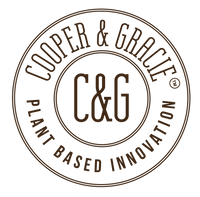Did you know that three out of every four crops we eat rely on insect pollinators, such as bees and butterflies? These helpful critters are responsible for pollinating all sorts of fruits, vegetables, nuts, spices, animal feed, coffee and even chocolate!
Up to 88% of flowering plant species are also dependent on insect pollinators. But pollinator insects are in decline. In the UK alone, bee species have decreased by 40%!
Sadly, bees face multiple threats: habitat loss, climate change, disease and toxic pesticides. In the last 70 years in the UK, there's been a 97% reduction in wildflower meadows, a favourite habitat of bees, providing them with diverse food sources and safe nesting sites. Unfortunately, what's left of our meadows are sparse, so bees are travelling further for less varied food sources.
 Changes in our climate affect bee nesting behaviour and disrupt delicate timing that has evolved over centuries. Meanwhile, extreme weather such as drought has devastating consequences for bees. Not to mention parasites and other diseases, which are also killing our precious bees.
Changes in our climate affect bee nesting behaviour and disrupt delicate timing that has evolved over centuries. Meanwhile, extreme weather such as drought has devastating consequences for bees. Not to mention parasites and other diseases, which are also killing our precious bees.
The use of pesticides, both on farms and in gardens, add to the challenges faced by bees. Some pesticides - particularly when applied during warm, sunny days when bees are most active - will kill bees directly. They can also impair a bee's ability to navigate, locate food, return to its nest, or communicate to the rest of the hive where it has found food sources. The widespread use of harmful pesticides is thought to act in combination with habitat loss, climate change and disease to cause Colony Collapse Disorder, destroying honeybee populations since 2006.
 One way you can help protect your local bees is by using our Pet-Friendly Bee Safe Rose Spray. Our rose cleanse spray is a 100% natural plant-based blend to wash away greenfly and protect these hard-working pollinators. If you must use pesticide sprays, use them at the end of the day when bees have returned to their hive. Avoid spraying the flowers (focus on the stems and leaves instead), and always follow the label instructions when applying pesticide products.
One way you can help protect your local bees is by using our Pet-Friendly Bee Safe Rose Spray. Our rose cleanse spray is a 100% natural plant-based blend to wash away greenfly and protect these hard-working pollinators. If you must use pesticide sprays, use them at the end of the day when bees have returned to their hive. Avoid spraying the flowers (focus on the stems and leaves instead), and always follow the label instructions when applying pesticide products.
We're dedicated to providing you with 100% natural products for your pets, home and garden that are socially and environmentally responsible. We believe that together we can do some good and feel good too. If you'd like to find out more about our work to be a sustainable and socially responsible business, check out the rest of our Sustainability Series by visiting our blog.
Written in collaboration with GB Sustainability

